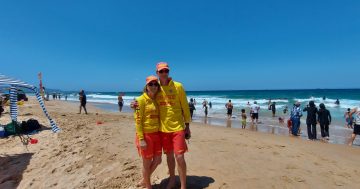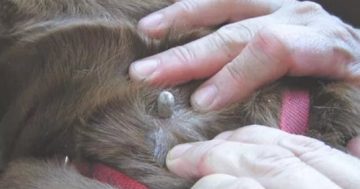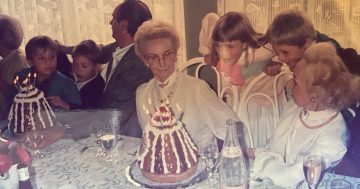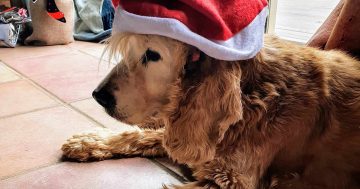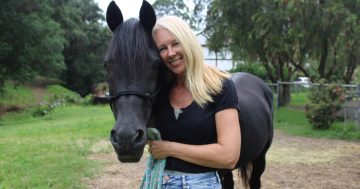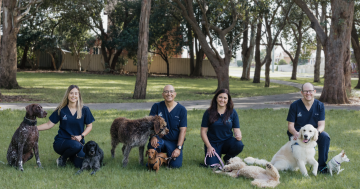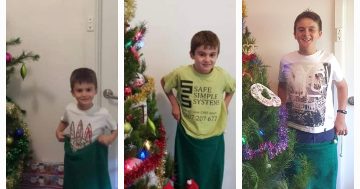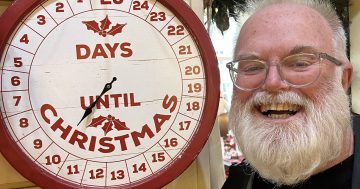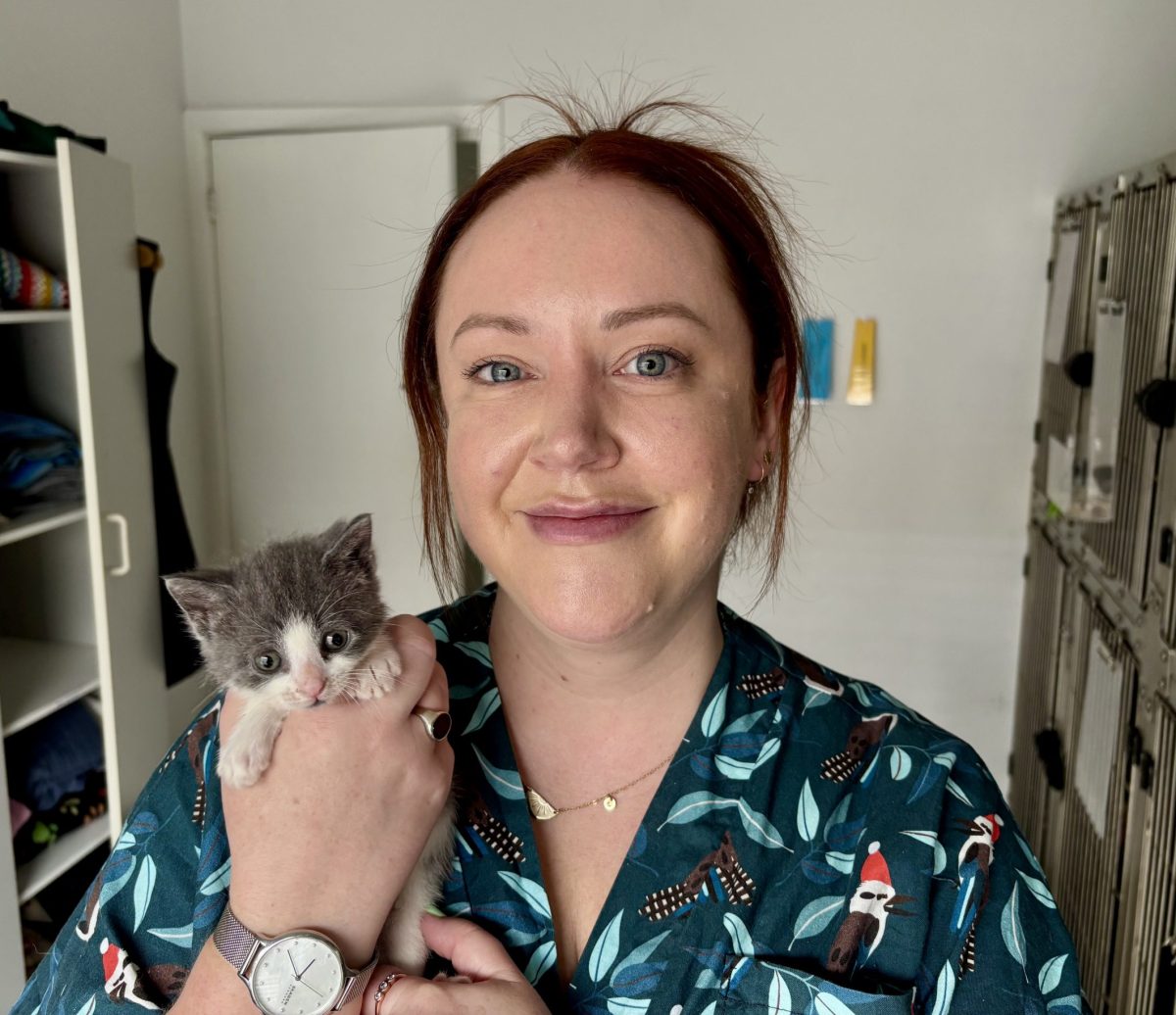
Vet Leah Slater will be working on Christmas Day while her family celebrates in Canada. Photo: Supplied.
As part of our 12 days of what Christmas means to me series, we meet veterinarian Leah Slater, who celebrates with her furry family.
Every year, distance separates millions of people from their families on Christmas Day and Dr Leah Slater is one of them.
But she will be putting her time to good use tending to Illawarra dogs, cats and other animals in need of veterinary care.
Leah, who is Unanderra Veterinary Clinic’s lead vet and hospital director, volunteered for the nine-hour shift because her family is more than 12,000 kms away in the Canadian city of Victoria on Vancouver Island.
Leah was born in 1986 in New Zealand while her geologist parents were travelling the world, and they returned to Canada with her and her sister when Leah was 10.
“Our white Christmases in Canada are very different to here,” she says.
“It’s mid-winter there so it’s mostly cozy indoor stuff with fires and warm meals. I also miss the winter activities like building snowmen, going sledding and for walks in the snow.
“I’ve been in Australia now for 15 years but the day never feels like Christmas to me, so I don’t mind doing that shift.”
Leah decided at a young age she wanted to be a vet and studied zoology at the University of Otago in New Zealand before taking on a veterinary science degree at University of Sydney in 2010.
So, what can she expect to see at the clinic on Christmas Day?
“We always get a lot of animals, particularly dogs, with gastro-intestinal upsets, who have eaten rich foods from the Christmas table.
“Other dangerous foods they can get into are things such as chocolate, especially dark chocolate, because the higher the cocoa content the higher the level of caffeine and theobromine which are what can cause heart problems.
“Grapes and sultanas can also be extremely toxic so you need to watch your pets around the mince tarts!
“We also can get both dogs and cats who have eaten stuff off the Christmas tree like baubles and tinsel, which can cause blockages in their stomach or intestines.
“Pet owners these days treat their animals like members of the family so they don’t want to relegate them to the backyard, but it’s advisable to watch them closely during the festivities because they are very good at stealing food and getting up to other mischief.”
Not even a Christmas on the beach is safe.
“We’ve had dogs in the clinic who have eaten bluebottles, but they usually vomit them up,” says Leah.
“Heat stroke is another common problem, particularly with short-nosed dogs like pugs, Frenchies and bulldogs, who struggle to breathe in extreme heat, so best to keep them indoors in air conditioning and away from hot pavements.”
A Christmas shift can be a busy one, says Leah, because it falls in the middle of summer with the ever-present threat of snakes and ticks.
“Tick prevention is strongly recommended for your pets because paralysis ticks can quickly kill dogs and cats, but for untreated dogs, there are tools available in pet shops, such as a tick key, that will remove the tick with a gentle but firm twist.
“If you’re worried though, always bring them to a vet and we’re more than happy to remove them for you.”
Despite the absence of family, Leah enjoys the Christmas vibe in Australia.
“It’s a time of the year when many of our regular customers bring in small gifts for the whole staff – we get lots and lots of chocolates,” she says with a laugh.
For emergencies on Christmas Day Leah and her team can be contacted on 4271 7200 and the answering machine will give you emergency contact details.









